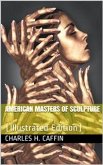Preface “WHATEVER concerns the manners and customs of a people, says Rollin, shews their genius and character; and this is what may be called the soul of history.” I am led to think, that a picture of customs, by presenting mankind with objects of comparison at a nearer view, naturally flatters them more, than facts or dates, the multitude or improbability of which fatigues the memory, or shocks the understanding. This is the reason why we prefer the private life of a hero, to the history of his great actions; the one gives us a secret satisfaction in which self-love finds its account: the other produces only astonishment. The hero is too distant from us; we admire him too much to presume to compare with him: ’tis the man we seek; his heart; his very weaknesses. ’Tis with still more eagerness we wish to examine his person; this is the cause of our liking better to see the portraits of great men, than to read their history. We would fain touch the hero with our hand, as one may say, we would wish to enter into competition with him. The knowledge of customs and ancient fashions forms a branch of literature which is not without its enthusiasts; this is the favourite study of antiquaries. Among the histories of these usages of our ancestors, that of the beard holds a distinguished rank; and though at present, from its little importance, it is become an object of ridicule, it has been held in high consideration in different ages and among different people. Never was there any thing like that caused so many troubles and so much ill blood: the cowls of the disciples of St. Francis never occasioned so much noise. The beard, which has been worn and highly respected at some periods, and despised at others, is become the sport of every witling. This mark of manhood, which was held sacred among the Hebrews and primitive Christians, highly condemned by some popes, and particularly countenanced by others, has been successively considered by the Roman church, as an odious heterodoxy, or the symbol of wisdom and Christian humility. Like objects of great worth, the beard never excited petty quarrels; both its enemies and partisans were violent: these anecdotes, so strange in this age, will not only amuse the reader, but discover the character of the people, the spirit of the times, and the narrowness of the human understanding. It must appear a strange paradox, perfectly shocking for crazy old beaus, for priests whose beards are always shaved close, in short, for all those that compose the effeminate part of the human species, to hear any one maintain, that a long beard becomes a man’s dignity, and that it is beneficial to health and good morals; his ideas must be very different from those of the present age. This however is what I have presumed to do. But whether the design of this work be serious or ironical, it has at least the appearance of novelty; and that’s a great deal in this age. To write an apology for long beards is to recall to men’s minds their ancient dignity, and that superiority of their sex which has been lost in Europe ever since the fabulous days of chivalry. This too is not the way to gain the good opinion of the ladies, seeing that it’s an attempt to diminish their authority; but at the same time it is restoring, in some respects, the sovereign power to the lawful master, and taking it from the usurper: At the conclusion I have laid aside jesting, and this perhaps may be thought the greatest defect; in composing it I found it impossible not to be serious: the gravity of the subject no doubt had an influence on my ideas, and I will not attempt to say any thing in my own defence.
Bitte wählen Sie Ihr Anliegen aus.
Rechnungen
Retourenschein anfordern
Bestellstatus
Storno









